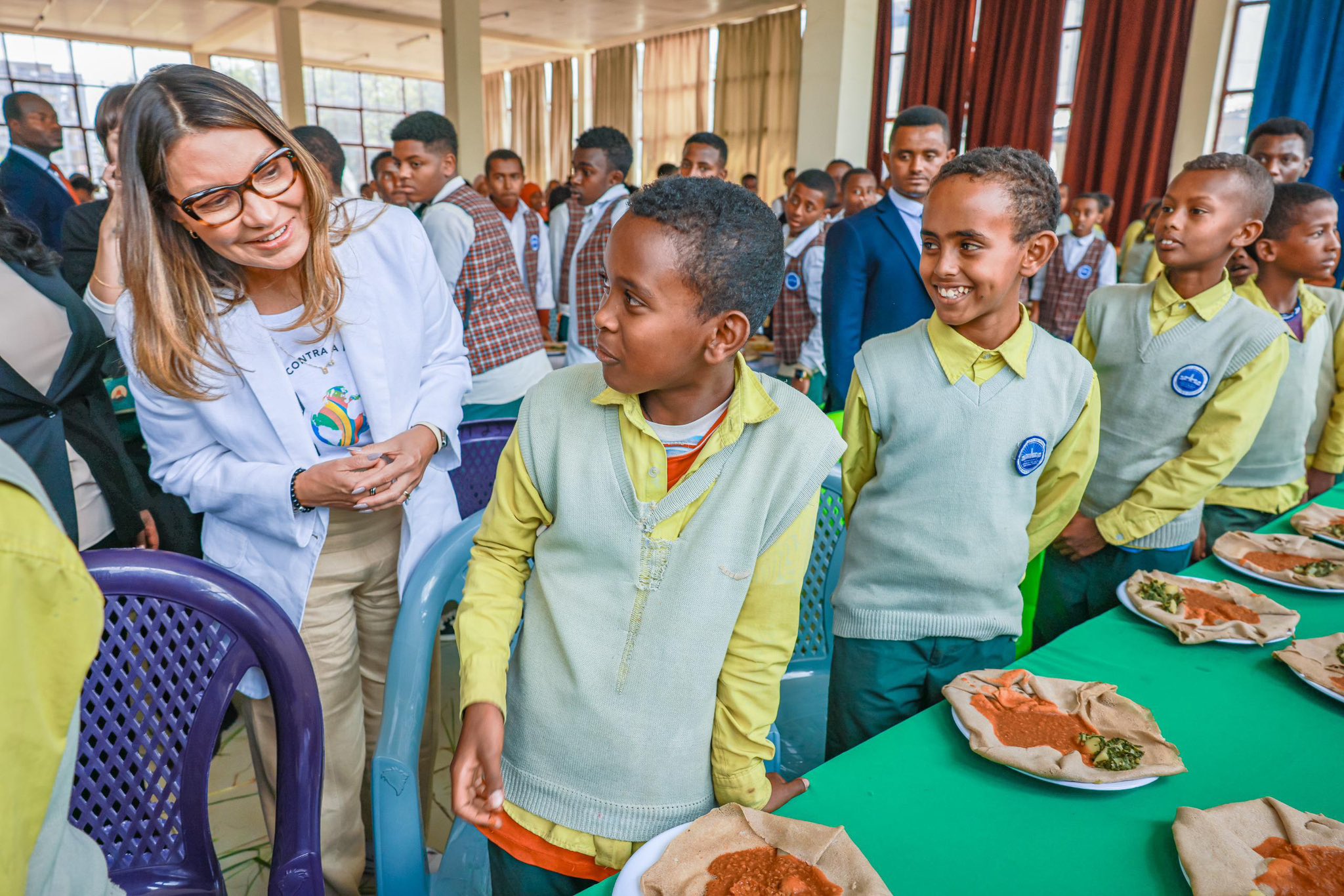
The African Union Summit, which took place in Addis Ababa, Ethiopia, between 17 and 18 February, marked a celebration of the history of cooperation between Brazil and the African continent in the area of school feeding and the fight against hunger. The Brazilian delegation, led by President Lula da Silva, also included First Lady Janja da Silva, who took part in various activities linked to the agenda of valuing school feeding and protecting refugees.
On Friday 16 February, the first lady visited the Makedela school in the capital Addis Ababa to learn about the school farming project and the production of food used in the meals served to over 1800 students every day. “As Brazil’s School Feeding Ambassador, I continue to advocate that ensuring nutritious and healthy meals for children is a pillar in the fight against hunger and the promotion of food security, as well as being essential for reducing inequalities,” wrote Janja da Silva in a post on social media after the visit.
On Saturday, during the delivery of a Brazilian donation to refugees in Ethiopia, the first lady highlighted the role of the World Food Programme (WFP) in cooperation efforts between Brazil and the African Union. “The Brazilian Government and the World Food Programme, through the Ministry of Education, and the Centre of Excellence against Hunger Brazil, have developed a cooperation between Brazil and the African Union for years, aimed at fostering discussion about school feeding and its role in combating hunger, as well as its connection to rural development. The partnership provided an exchange of experiences with visits to Brazil and African countries, including Ethiopia, and resulted in the inclusion of home-grown school meals in the continental education strategy,” she said.
Partnership between the WFP Centre of Excellence and the African Union
The WFP Centre of Excellence against Hunger in Brazil supported the African Union (AU) in the process of consolidating its Continental Education Strategy for Africa (CESA), which was approved by the African Union Commission in 2016. Both the 2030 Agenda for Sustainable Development and the AU’s Agenda 2063 include an education and training revolution in Africa.
Since the presentation of CESA, the WFP has joined forces with the AU to support the incorporation of school feeding into the Strategy. With South-South and Triangular Cooperation, WFP offices and the Centre of Excellence have developed a series of tools, frameworks and documents to make school feeding an integral part of CESA. The full delivery of these products took place in 2020, and the AU is currently moving forward with full ownership.
In 2017, the AU created thematic clusters to implement specific CESA objectives. In each cluster, stakeholders can access information on the design and implementation of school feeding programmes. CESA’s formal school feeding cluster was also launched in 2017, and its members appointed a team to coordinate the work.
In 2018, the WFP Centre of Excellence and the WFP African Office drew up all the supporting documents to organise the clusters in a consultative process. In 2019, these documents were handed over to the AU during the third African Day of School Feeding and, since 2020, the multinational and multisectoral cluster has been operating under the leadership of the AU. It is made up of the AU, WFP, FAO, UNESCO and representatives of the Ministries of Education and Culture of the states’ members, which guide the cluster’s actions and are used to design a strategic and operational plan to achieve CESA’s vision and objective by 2023.
Another important result of this work was the designation of 1st March as African Day of School Feeding. The date marked the commitment of African countries to promoting school feeding programmes linked to local food production as a strategy for achieving the Sustainable Development Goals. The first edition of the celebration took place in Niger in 2016.




